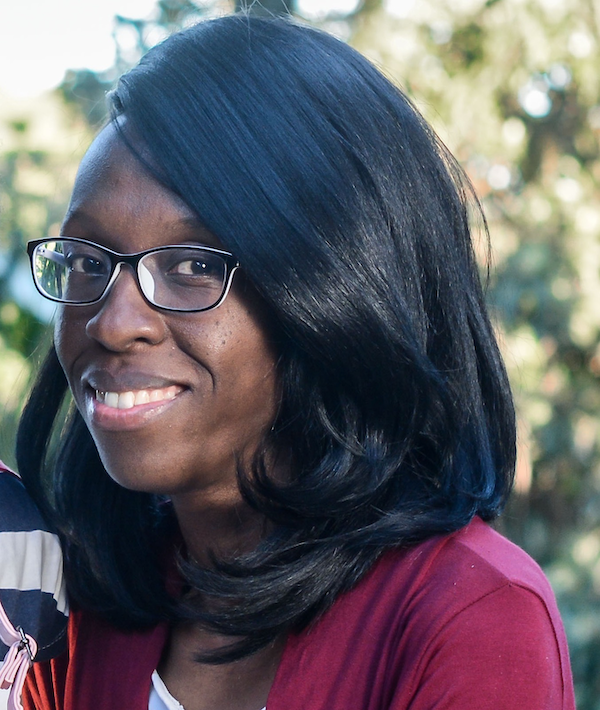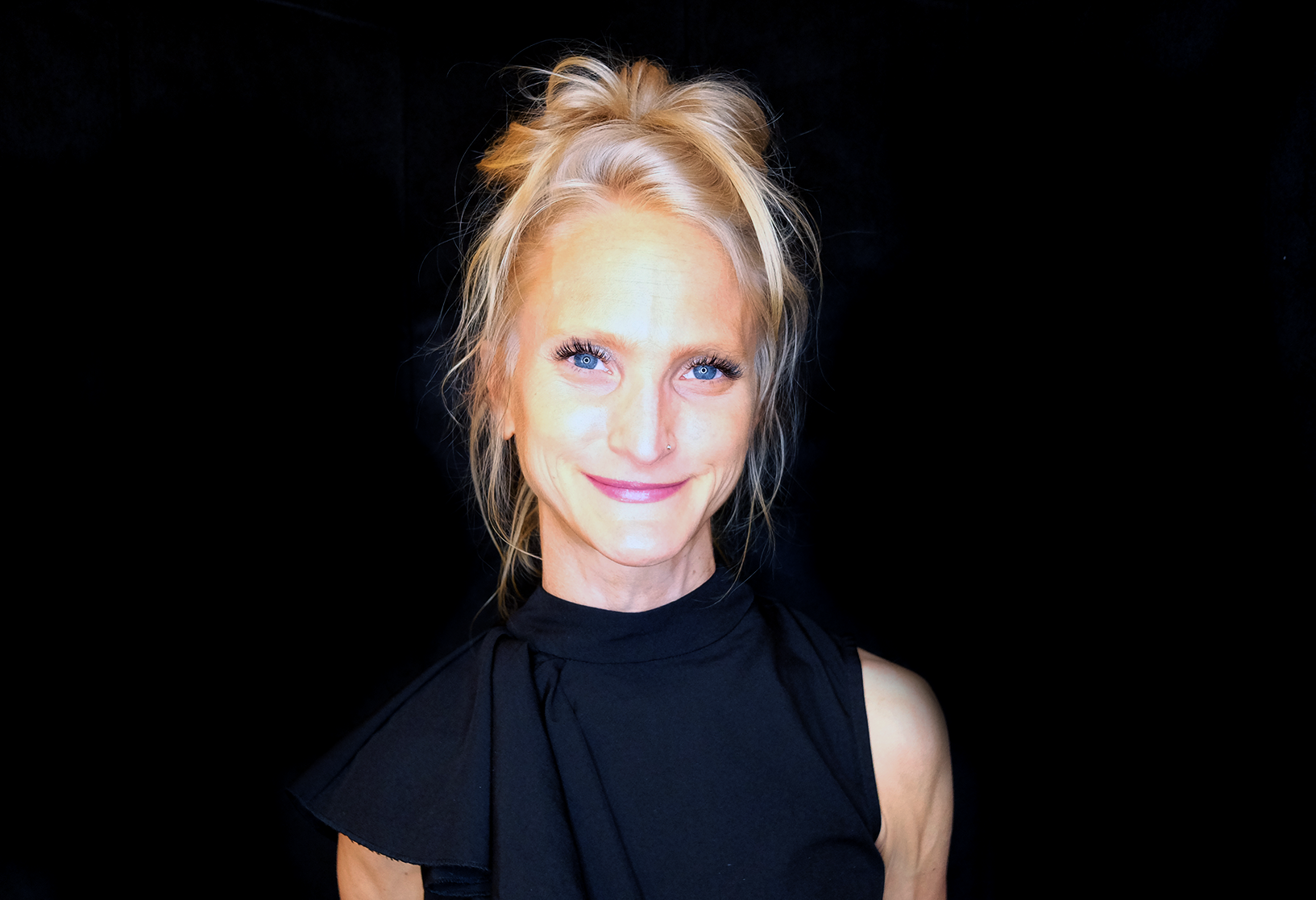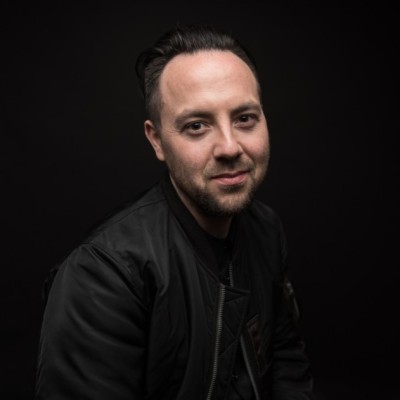How They Made It is an interview series that focuses on indie creators, exploring how they got their start and how their shows and practices have evolved since then. We hope you find inspiration in them for your own creative projects.
If there’s an indie creator who’s hit it big that you think we should feature, send an email to ashley@descript.com.
John August has been talking about writing on the internet for literal decades. It started with a blog. That blog then turned into Scriptnotes, a weekly podcast about screenwriting and things that are interesting to screenwriters, which he co-hosts with friend and fellow script writer Craig Mazin.
Since it debuted in 2011, Scripnotes has posted 600+ episodes of mostly-evergreen content about writing, as well as various other topics related to working in The Industry, as the movie business often styles itself.
Scriptnotes is a titan in independent podcasting and a shibboleth among aspiring writers, so we were thrilled that John and producer Drew Marquardt sat down with us to talk about making sample episodes, finding chemistry, and giving guests magic scissors to help them feel more comfortable during recording. This conversation has been edited and condensed for length and clarity.

So John, you’d been blogging for a while. What made you think, I'm going to jump mediums and try audio?
John: I had my blog starting back in 1998, 1999. It was a chance to answer the common questions I was getting about screenwriting. For a while I had comments turned on, and there was sort of a community. But I turned comments off, because comments are a black hole of terribleness. And I realized that ultimately, a blog is very much a monologue.
I was listening to a lot of podcasts, particularly John Gruber's show The Talk Show, and some of the Slate podcasts: Culture GabFest, Political GabFest. I thought that it would make more sense to just have a weekly conversation with another smart writer or two about craft. Craig, he had no knowledge of podcasts whatsoever, but he said, “Sure, I'll try it.” We did a sample episode or two, and then our first real episode.
What were the sample episodes like?
John: I don't think they were full episodes. It was mostly about trying to get the technology right, and trying to get our mics sound right. I was relying on blog posts [to figure out how the tech worked].
We've always been a double ender podcast. So he and I were recording separately and each keeping our own audio. And then I would take the two tracks and put them together in GarageBand and sync them up.
A lot of it is learning how to keep the ball in the air when you're not there, physically, in person. From the start we've had our cameras turned off, which I think is good advice for people to consider because it forces you to really be thinking about, What does this sound like? What am I hearing? and not be distracted by people's faces and reactions.
How has your tech setup changed over the years?
John: A lot of it is really very similar. I don't recall what our first microphones were. We still have the same Sony MDR headsets. We were talking on Skype, recording locally on our own machines, throwing everything into Dropbox, and then from Dropbox, I would do the episodes. One of the things that was so barbaric was how you set up the podcast feed: it was a very clunky, mechanical process. It was pre-Libsyn! That’s gotten a lot smoother.
Craig from the start said, “We have to make sure that we're consistent. If we're coming out on Tuesdays, we don't ever miss a Tuesday.” And that's been the case. It sets an expectation for audiences that there's always going to be an episode Tuesday morning. If we can't record, we're going to put an encore episode or something else there, so there's always something new in your feed.
And you’ve also started doing these Sidecasts recently. Tell me how those came about.
John: Scriptnotes from the start has been an evergreen show. It’s not topical, and it's never been very good at being topical.
So as we were coming up into this [Writers’ Guild of America] negotiation cycle, there was going to be a lot of very timely news. Scriptnotes itself wasn't going to be a good medium for doing that. So with Megana Rao, who was the producer at that time, I said well, what if we just broke off and did sidecast episodes, that were just about the newsy stuff, and kept the main feed clear?
To do that, we had to change our workflow. I wanted to be able to turn things around more quickly. And so first with Megana, and then Drew, I said, let's figure out a new workflow so we can go from recording to it's out there in the world in an hour or two.
On the very first day of the actual strike, Drew and I are just out on the picket line, with our iPhones, talking to people. And it's like, “I think this is actually going to be okay.” Drew can cut that together. It doesn't have the smoothest transitions; you want it to feel a little bit more raw. That was a new kind of audio language for the podcast that we were playing around with.
Drew: We've gotten better at it, too. I think that first episode, you hear those hard cuts, and I've learned to do smoother transitions.

And I understand that you edit the Sidecasts using Descript!
Drew: Matthew (Scriptnotes’ editor) can do really sophisticated things; we rely on him for the main episodes. But for that quick turnaround, we'd been looking for something else. John, you had found Descript by the time I came on in episode three of the Sidecast. If there's any issues, there's the Studio Sound that can smooth over quite a lot of things. It's just a really great way to quickly get something out there.
John: If we were to do Scriptnotes from scratch now, we probably would go just do it in Descript.
John, did you feel like blogging had given you some practice at deciding how much of your personal life to put out there on the show?
John: The fact that we're starting this in our late 30s, early 40s—we were both really mindful of what the right level of boundaries was. We'll reference our kids in a general sense, we’ll reference our spouses, but we won't get too much of the details. Or talk about people we work with. We’re not going to spill any dirt on the active projects that we're working on.
Drew: You do a good job of letting guests define their boundaries as well. Before our guest episodes, John says the same thing, which is: “You have a pair of magic scissors, and at any point you can say, ‘I don't want it to have this in there.’ Even if it's after we've recorded, up until it's released, you can email Drew and he can cut that out.’” I think that lets people relax and talk more openly.
When did you start thinking about monetizing?
John: We never wanted to make money off the show. It’s such a luxury to be able to say that, but this is not Craig and I's source of income at all. We make our living as screenwriters. And so for the first many years, we were just like, “We're a money losing podcast.”
We would do some things to lose a little less money: looking at our server costs and trying to find good ways to do that. We'd sell t-shirts—and that's part of community building for sure. It’s so great to see Scriptnotes t-shirts out in the wild.
It was really coming into Pay Up Hollywood that I was recognizing that both Matthew and Megana, who was producing at that point, were doing professional jobs. And I was paying them, but not as much as they would be paid as professional podcast people. Okay, so how do we get them paid properly? How do we actually make this a sustainable business?
We knew we didn't want to do advertising. It would make the podcast work, and we didn't want the podcast to be work.
So we started looking at, what's a subscription model that would make sense? We talked to the folks at Slate, who had to come up with a new product called Supporting Cast. We were one of the first podcasts on Supporting Cast. Our premium members pay us five bucks a month; they get access to the entire catalog, and they get bonus segments at the end of every episode.
We're at 5,000 folks paying us $5 a month, and that's good money. That money pays for Drew, and pays for Matthew. And then the extra we donate away. We’ve donated $20,000 so far to the Entertainment Community Fund, which helps support folks during the strike.

I love that you decided that the podcast wouldn’t be work. Because it’s amazing to make money from doing something you love, but it’s also nice to have something that’s more of a hobby, or a passion.
John: I did a podcast called Launch for Wondery. It was a six episode show about the process of writing and launching my book—I did a middle grade book series. And it was great to learn how all that worked, but I also had to learn like, Oh shit, here's how advertising works. And here's the pressure to make a hit podcast. These are the things you have to do.
I knew the standard advertising model, or sign up with a big network, it’s just not going to be it for us [at Scriptnotes]. We've been completely independent from the very start.
What advice do you have for beginning podcasters?
John: You need to have a plan for what it's going to feel like on a weekly basis. Why would you want to keep coming back to it? Do some sample episodes and really figure it out.
And if they're looking to do a podcast that's a weekly conversation with somebody, the chemistry with who you're talking with is paramount. That's what's ultimately going to drive it.
Drew: I think finding a structure and being really disciplined with your editing is super important, too. Chemistry is very important, but you hear a lot of podcasts where people have a tremendous amount of chemistry, and it just goes on. Being ruthless with that, and cutting back and finding that shape, and knowing what the gold is in there: I think that is probably the biggest thing to practice early on.
John: For framing, it’s so important to have a stereotypical listener in your head. So I'm always thinking about, our listener is somebody in the Midwest who really wants to learn about screenwriting and has no firsthand ability to do it. So just talk about things in a way that they will understand, and don’t presume knowledge that they may not have. Finding that is so crucial, because if you don't have that, you may be talking to the wrong audience. It may not be clear who it is you're really trying to talk to.
The tech is much easier than it ever has been. Just get a good mic, wear some headphones. Don't be in an echo-y room. You're going to be great.






%20(1).JPG)



























